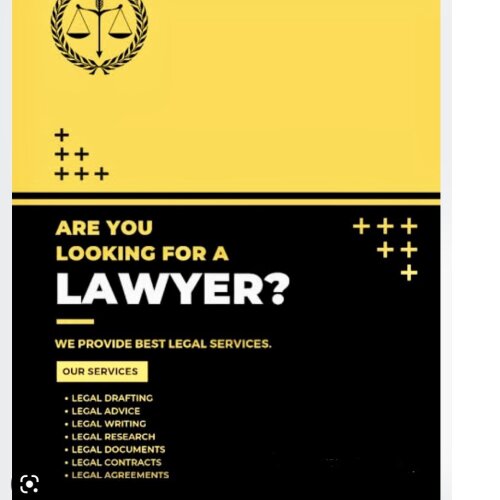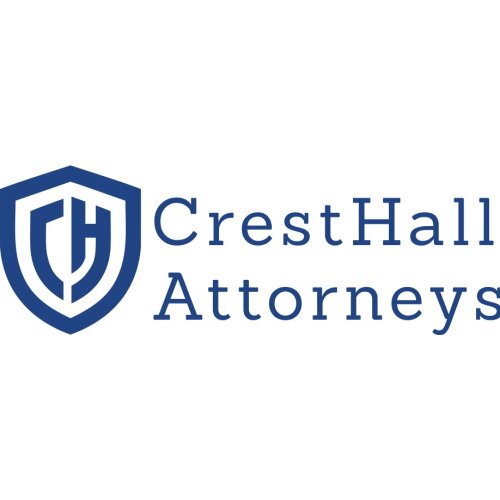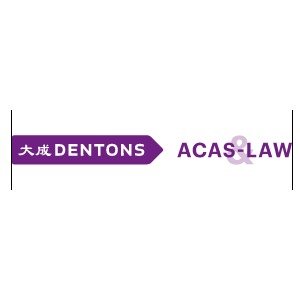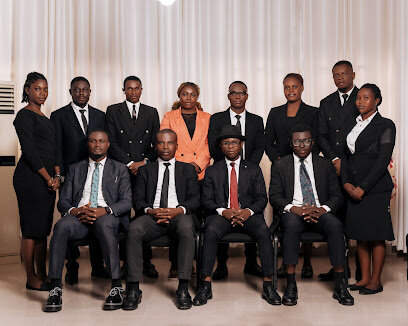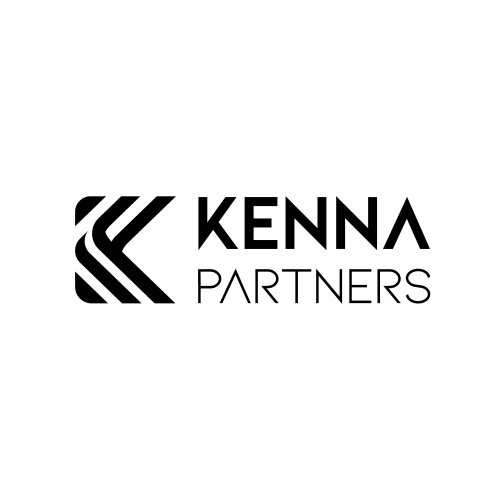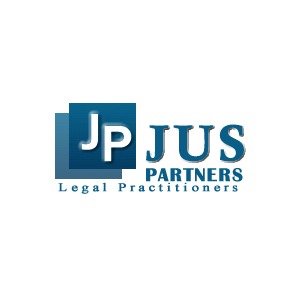Best Media, Technology and Telecoms Lawyers in Lagos
Share your needs with us, get contacted by law firms.
Free. Takes 2 min.
List of the best lawyers in Lagos, Nigeria
Legal guides written by Adeola Oyinlade & Co:
- Procedure and Requirements for Work Permit and Visas in Nigeria
- The Step-By-Step Procedure of How to Apply for Microfinance Bank License Online in Nigeria
- How to Ensure the Smooth Recognition and Enforcement of Foreign Judgments in Nigeria
Nigeria Media, Technology and Telecoms Legal Articles
Browse our 1 legal article about Media, Technology and Telecoms in Nigeria written by expert lawyers.
- Telecommunication Services in Nigeria: The Available Legal Rights and Remedies to Customers (Subscribers)
- Telecommunications services are essential to modern society, which facilitates global communication, business, and connectivity. In recent years, Nigeria's telecommunications business has developed and expanded greatly, owing to technology breakthroughs and regulatory reforms. However, in addition to these advancements, consumers frequently face issues such as network congestion, call dropouts, and insufficient... Read more →
About Media, Technology and Telecoms Law in Lagos, Nigeria
Lagos is the commercial and technological hub of Nigeria, playing a crucial role in the fields of media, technology, and telecommunications. These industries are governed by various laws and regulations aim to balance the interests of entrepreneurs, businesses, consumers, and the government. Media, Technology and Telecoms Law in Lagos encompasses issues like data privacy, digital rights management, content regulation, intellectual property, and telecommunication licensing. As the digital landscape continues to evolve, Lagos remains at the forefront of innovation, simultaneously grappling with the unique legal challenges such growth presents.
Why You May Need a Lawyer
There are several situations where individuals and businesses might require legal assistance in Media, Technology, and Telecoms:
1. Protecting intellectual property rights, like trademarks and patents, for technological innovations or media content.
2. Navigating regulatory compliance for setting up tech-startups or telecom companies in Lagos.
3. Drafting and reviewing contracts for technology services, licensing agreements, or content distribution deals.
4. Addressing violations of data privacy and managing digital rights or breaches of cybersecurity.
5. Handling disputes or litigation related to defamation, copyright infringement, or advertising claims.
Local Laws Overview
Several regulations govern Media, Technology and Telecoms in Lagos:
- The Nigerian Communications Act (2003) outlines the framework for telecommunications operations and sets licensing conditions for service providers.
- The National Broadcasting Commission Act regulates broadcasting content and licensing for radio, TV, and digital media companies.
- The Cybercrime (Prohibition, Prevention, Etc.) Act (2015) addresses unlawful cyber activities, digital fraud, and security breaches.
- The Nigerian Data Protection Regulation (NDPR) provides guidelines on data privacy and protection for organizations collecting or processing personal data.
- Copyright Act protects works of literature, art, music, and software, safeguarding creators’ rights against unauthorized exploitation.
Frequently Asked Questions
What types of intellectual property protection are available in Nigeria?
Nigeria recognizes several forms of intellectual property protection, including copyrights, trademarks, patents, and designs. Each serves to protect different creative works, inventions, or brand identifiers.
Can foreign companies operate within the Lagos technology sector?
Yes, foreign companies can operate in Lagos but must comply with Nigerian laws, including company registration and obtaining necessary permits or licenses for telecom services or technology solutions.
How can startups ensure compliance with data protection regulations?
Startups must implement data protection measures in line with the NDPR, which may include appointing a Data Protection Officer, conducting regular audits, and ensuring transparent data handling practices.
What should media companies know about content regulation?
Media companies must abide by regulations from the National Broadcasting Commission, which set standards for content accuracy, fairness, and public morality, applicable to both traditional and digital media.
How are digital contracts legally managed in Nigeria?
Digital contracts in Nigeria are recognized under the Electronic Transactions Act (currently a bill), which mandates e-signatures be used correctly to ensure digital agreements are enforceable.
What recourse is available in case of a telecom service dispute?
Telecom users can address complaints directly with the service provider first. If unresolved, they can escalate the matter to the Nigerian Communications Commission (NCC) for mediation or resolution.
How is online defamation handled under Nigerian law?
Defamation laws apply to online content just as in traditional media, where plaintiffs can sue for damages if published statements harm their reputation.
What licenses are required for establishing a telecom business?
A telecom business must acquire an operating license from the NCC, which may include different types depending on services offered, such as facility-based operations or internet service provision.
Is cross-border data transfer allowed under Nigerian laws?
Cross-border data transfers are allowed but must comply with NDPR guidelines, ensuring that the receiving country maintains adequate data protection standards.
How can legal issues affect digital advertising in Nigeria?
Legal issues under the Advertising Practitioners Council of Nigeria (APCON) can pose challenges related to misleading advertisements, intellectual property violations, and non-compliance with advertising codes.
Additional Resources
For those seeking legal advice in Media, Technology, and Telecoms, consider exploring the following resources:
- Nigerian Communications Commission (NCC): for telecommunications regulation and consumer complaints.
- National Information Technology Development Agency (NITDA): for guidance on data protection laws.
- Lagos State Tech Hub: provides support for tech startups, including legal workshops.
- Nigerian Bar Association: offers access to a directory of legal professionals specializing in IT and telecommunications law.
Next Steps
If you need legal assistance in media, technology, or telecoms, you should:
1. Identify a lawyer or law firm specializing in media, technology, and telecoms law. Look for professionals with a track record in handling similar issues.
2. Prepare all relevant documents and records related to your case before consultations to provide comprehensive information.
3. Schedule a detailed consultation to discuss your legal needs and develop an appropriate strategy or defense.
4. Stay informed about developments in local regulations and maintain regular contact with your legal advisor for ongoing compliance.
Lawzana helps you find the best lawyers and law firms in Lagos through a curated and pre-screened list of qualified legal professionals. Our platform offers rankings and detailed profiles of attorneys and law firms, allowing you to compare based on practice areas, including Media, Technology and Telecoms, experience, and client feedback.
Each profile includes a description of the firm's areas of practice, client reviews, team members and partners, year of establishment, spoken languages, office locations, contact information, social media presence, and any published articles or resources. Most firms on our platform speak English and are experienced in both local and international legal matters.
Get a quote from top-rated law firms in Lagos, Nigeria — quickly, securely, and without unnecessary hassle.
Disclaimer:
The information provided on this page is for general informational purposes only and does not constitute legal advice. While we strive to ensure the accuracy and relevance of the content, legal information may change over time, and interpretations of the law can vary. You should always consult with a qualified legal professional for advice specific to your situation.
We disclaim all liability for actions taken or not taken based on the content of this page. If you believe any information is incorrect or outdated, please contact us, and we will review and update it where appropriate.
Browse media, technology and telecoms law firms by service in Lagos, Nigeria
Lagos, Nigeria Attorneys in related practice areas.







